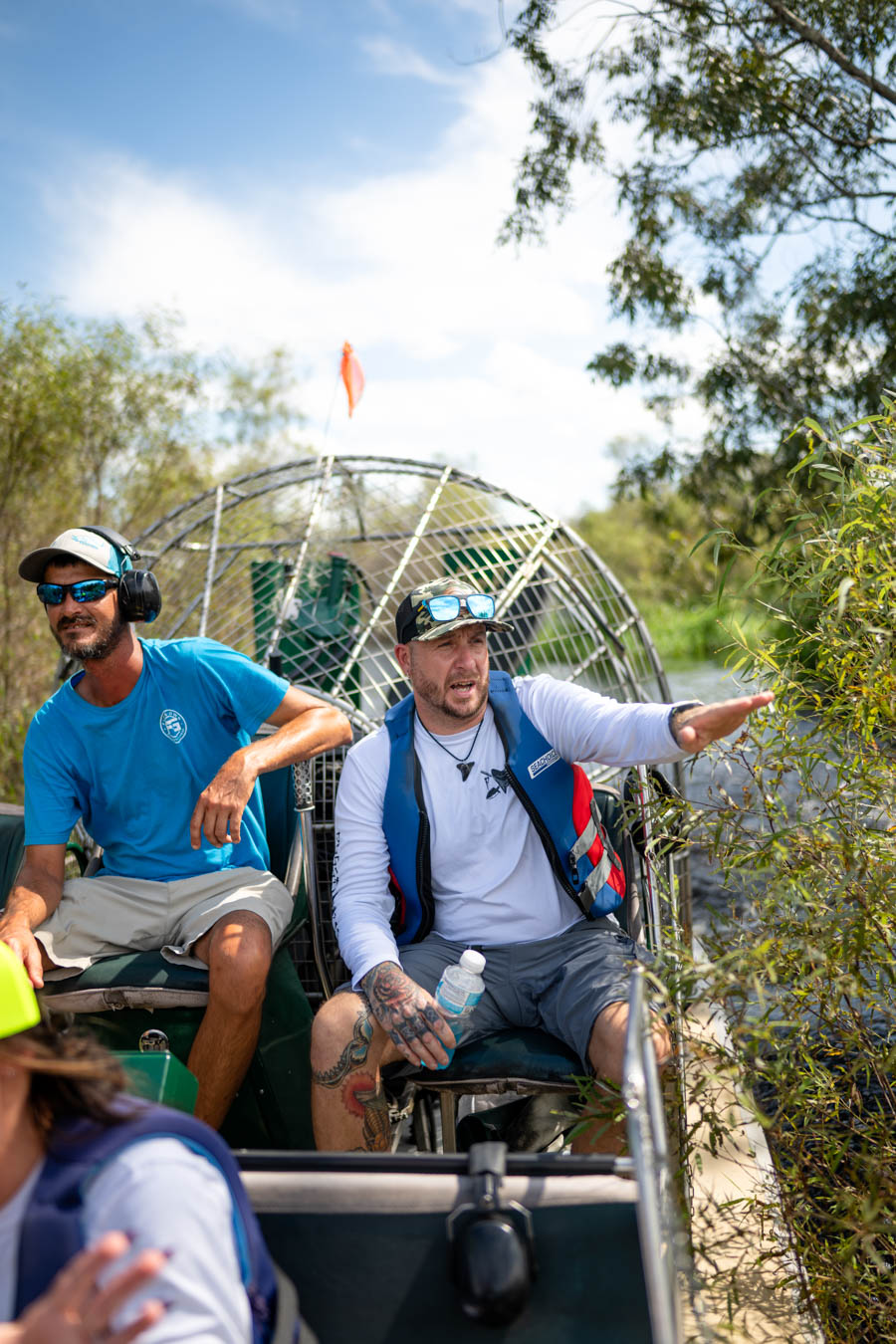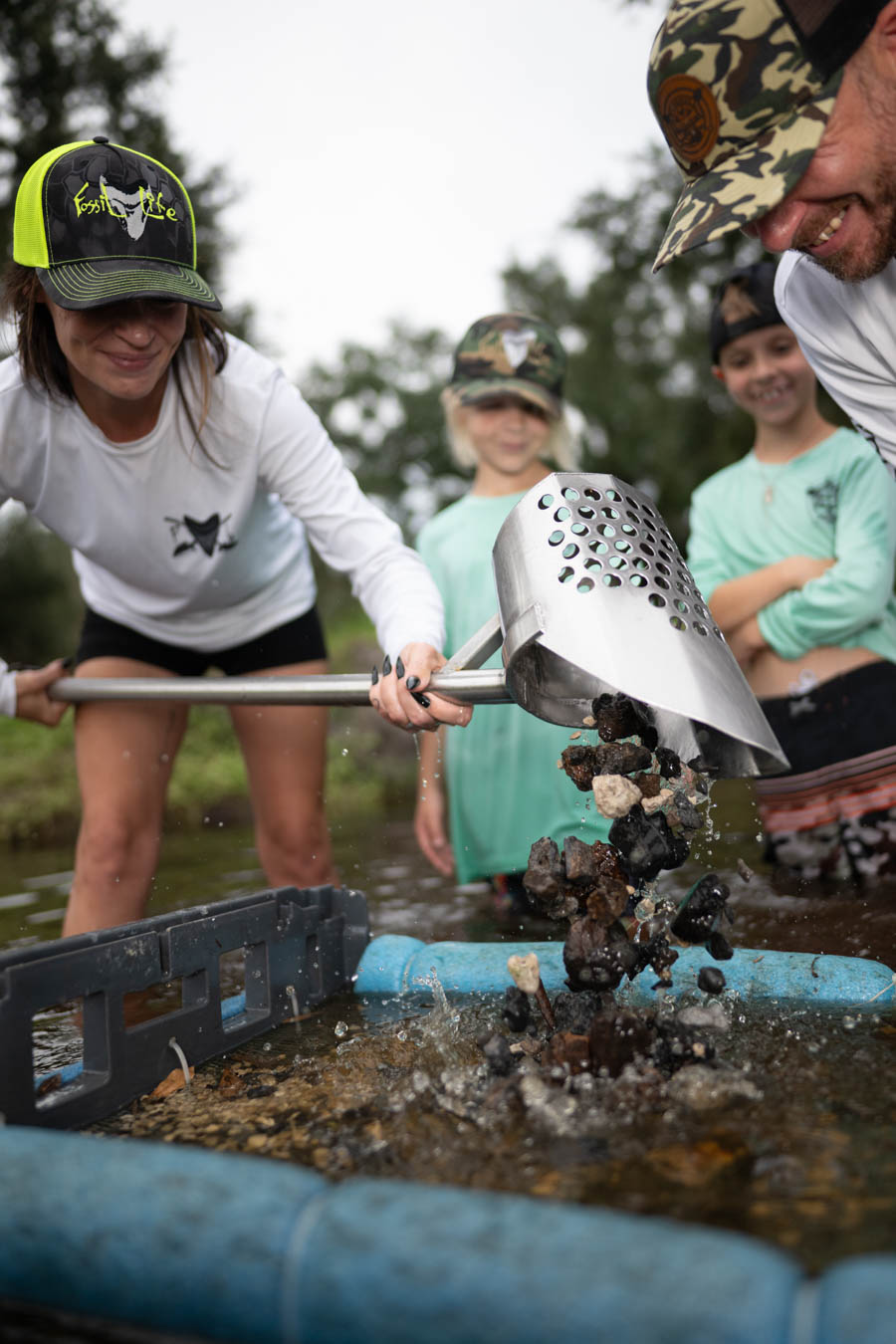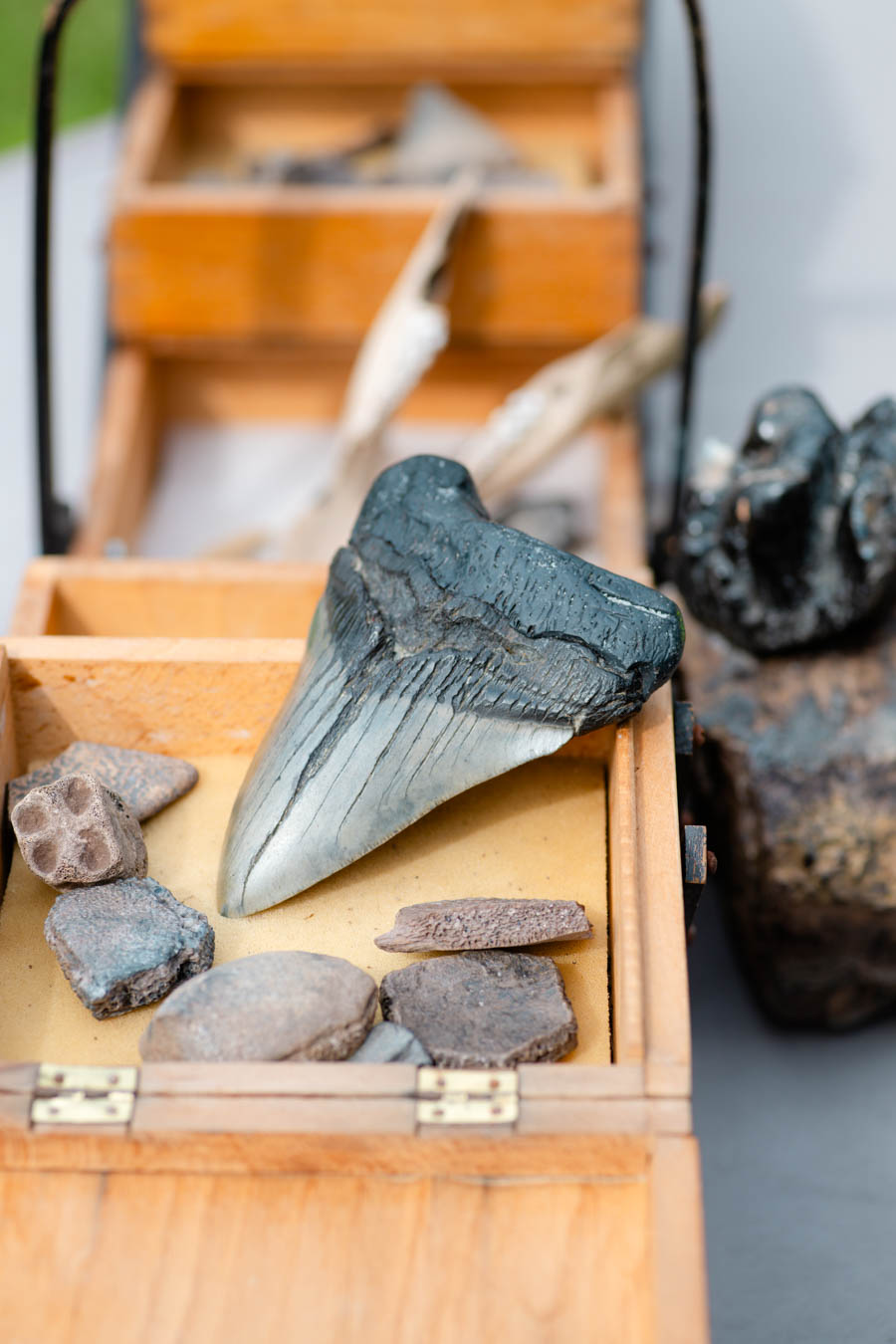Chris Mandell has always dug for buried treasure. He did so growing up in Western New York, sifting through the sediment of creeks and streams for local Devonian fossils. He did so as a father, taking his children to the beaches of Florida’s Gulf Coast to hunt for Megalodon teeth. And he does so now, as the owner and tour guide of Fossil Recovery Exploration (FRE). “I came to FRE in 2020 originally as a customer. I became friends with the original owner, started guiding with him and networking myself throughout the fossil community,” says Mandell. “As I gained knowledge, the gentleman that owned the business expressed the fact that he was looking to retire and it kind of fell into my lap.”

Mandell, who has been splitting his time between working as a United States Coast Guard charter boat captain on Lake Ontario and selling antique books in Florida, was thrust into an ownership position after Hurricane Ian wiped out his collection of antique books in 2022. Ever since, Mandell has brought his voracious appetite for fossils—and infectious attitude—to Desoto County, where FRE operates along the tannin-stained creeks and estuaries of the Peace River. FRE is a partner of Peace River Charters, an outfitter that provides them with the airboats, swamp buggies and resources to access the privately owned land on which they dig for fossils. The Peace River Formation of South-Central Florida—and the Floridian peninsula as a whole–is a hotbed for fossils because of the geological variations tracing back approximately 50 million years ago. As a result of fluctuating sea levels–the entire peninsula at one point submerged under an ocean–and sedimentary run-off from the Appalachian mountains, fossils from different eras of land and marine mammals can be found buried throughout the area’s dense swamps, creeks and riverbeds.
A dig with FRE lasts four to six hours and starts in the morning, with an educational “lecture” preparing participants for what to expect, before a wind-whipping ride on an airboat—or slightly slower ride on a swamp buggy—to the dig site, where participants wade through the black water river, digging for primordial treasure with speciality shovels and sifts. “Myself and the other guides delight in helping everybody that we can. We dig alongside them, educating as we go. There’s a lot of hands-on tutorials with the equipment which is all locally sourced and built within or partnered with a local company,” says Mandell. “We want to give them the knowledge they need where if they choose to do this on their own, they’ve got a way better idea of how to do it. We don’t try to hold the customers to come back only with us, we want them to take what they’ve learned and do it right, do it ethically in respect to the rules of the state and the environment.”

The day ends with a ride back to the launch site, where Mandell and his team will help patrons identify their findings–which range from Megalodon teeth to whale invertebrates to jaw bones of wooly mammoths—and answer any questions they might have. Mandell’s family typically joins him at this time, his wife making custom necklaces from shark teeth and his children basking in the afterglow of the primordial hunt. This is where his life has taken him, from the swells of Lake Ontario to the banks of the Peace River, deep within the Floridian undergrowth. For Chris Mandell is still digging, not just for fossils, but for the memories that accompany them.










